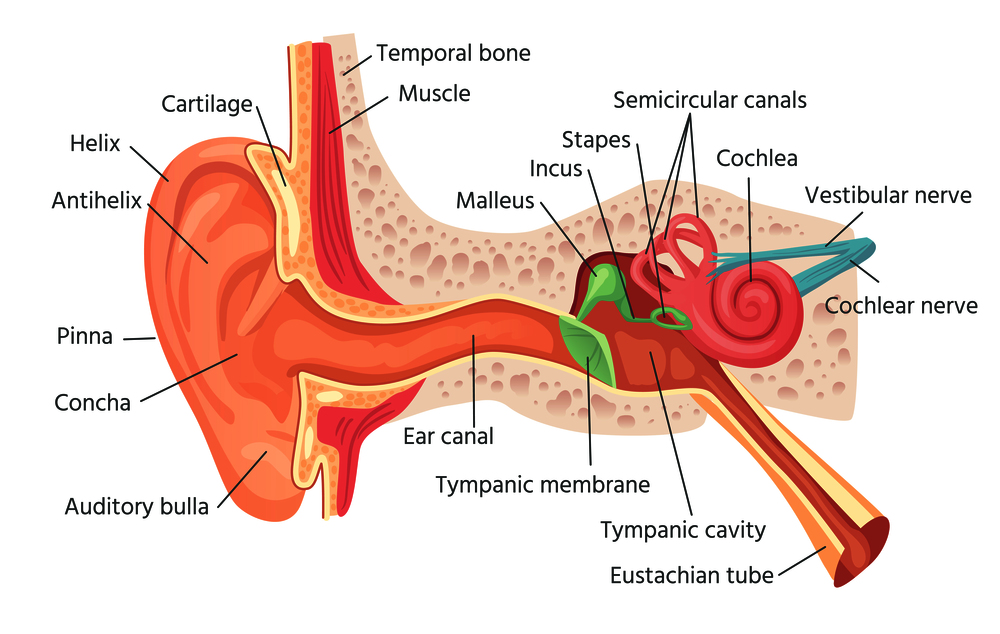Benign Paroxysmal Positional Vertigo
Are you dizzy even if you move your head a little?
Many people think that dizziness is due to anemia and take iron pills. In addition, if the dizziness suddenly gets worse, they know if it is a stroke, they go to the emergency room. However, it is often caused by BPPV.
What is BPPV (Benign Paroxysmal Positional Vertigo)?
In the vestibular system, which is part of the inner ear, there is a part of calcium carbonate crystals called ‘otolith’. The otolith in this area is a substance that makes you feel the change of gravity. When this otolith is escaped from its original position and flows into the liquid inside the semicircular canal, dizziness occurs every time the head is moved.

Any common age groups?
It might happen more frequently in age between 50s to 70s.
What is the cause?
There are many cases where the exact cause is not known, but it is said that the incidence increases with age as a type of degenerative process. This is because every part of the body ages and degenerates, and these otoliths are no exception. As wrinkles occur, moisture decreases in the otolith organs, and calcium components escape, and the balance between otolith formation and extinction is disrupted, and the displacement of abnormal otoliths is increased.
Older women may often develop BPPV. It is thought that changes in female hormones that affect calcium metabolism, such as osteoporosis, will also affect otolith.
Other causes may include external trauma, viral infection, drug side effects, Meniere’s disease, ear surgery.
What are the symptoms?
- Dizziness
- A sense that you or your surroundings are spinning or moving
- A loss of balance or unsteadiness
- Nausea or vomiting
Dizziness varies from person to person, from mild to severe enough to cause fear. Even if the symptoms are severe, they usually last briefly within a few minutes if the head is still without moving. When you move your head, the dizziness gets worse.
During dizziness, it is accompanied by a feeling of nausea, and in severe cases it may cause vomiting. It may also be accompanied by chest palpitations and cold sweats. Ear pain is not accompanied, and if it is not diagnosed properly, it may suffer for a long time.
How is the diagnosis?
The test is done by inducing dizziness by putting a person into a specific posture that makes them feel dizzy, and this BPPV can be confirmed. Placing the head in the direction in which the semicircular canal is stimulated can lead to dizziness and nystagmus and make a diagnosis.
If the diagnosis is unclear, it is checked for abnormalities in nerve function and balance function, and additional radiological tests such as hearing test, balance function test, and MRI are performed.
Treatment?
In general, BPPV often improves within 4 to 6 weeks without any treatment, and sequelae rarely remain. However, if symptoms persist, the patient’s discomfort is severe, and early treatment is recommended. As a treatment method, Otolith Repositioning Procedure is often used to return otoliths out of their position to their original position. Since dizziness can also be caused by other diseases, it is important to use various tests to pinpoint the cause.
Are there any complications?
BPPV rarely causes complications. However, in rare cases, continuous vomiting due to BPPV leads to dehydration. When dizziness is severe, it is difficult to balance and increase the risk of falls, so be careful.
Can it recur?
Recurrence is common in BPPV. Many recurrences occur when the body is tired or stressed, when immunity is weakened, such as after a cold. When it recurs, it is most effective not to be surprised by the sudden symptoms and to seek medical attention. Salty foods along with stress are the main culprit for ear health. A low salty diet is recommended because it can increase pressure in the ear or worsen the disease.
How is prevention?
There are no specific preventive measures for BPPV, but it is better to avoid abruptly changing the position of the head or changing posture. It is also recommended to see a medical doctor in case of severe vertigo, as BPPV may occur due to head trauma. Also, if you have dizziness on a regular basis, you should always be prepared for loss of balance, use a cane to prevent a fall, or sit right if you are dizzy.
Steven Koh, MD
Family Medicine
Edmonds Medical Clinic